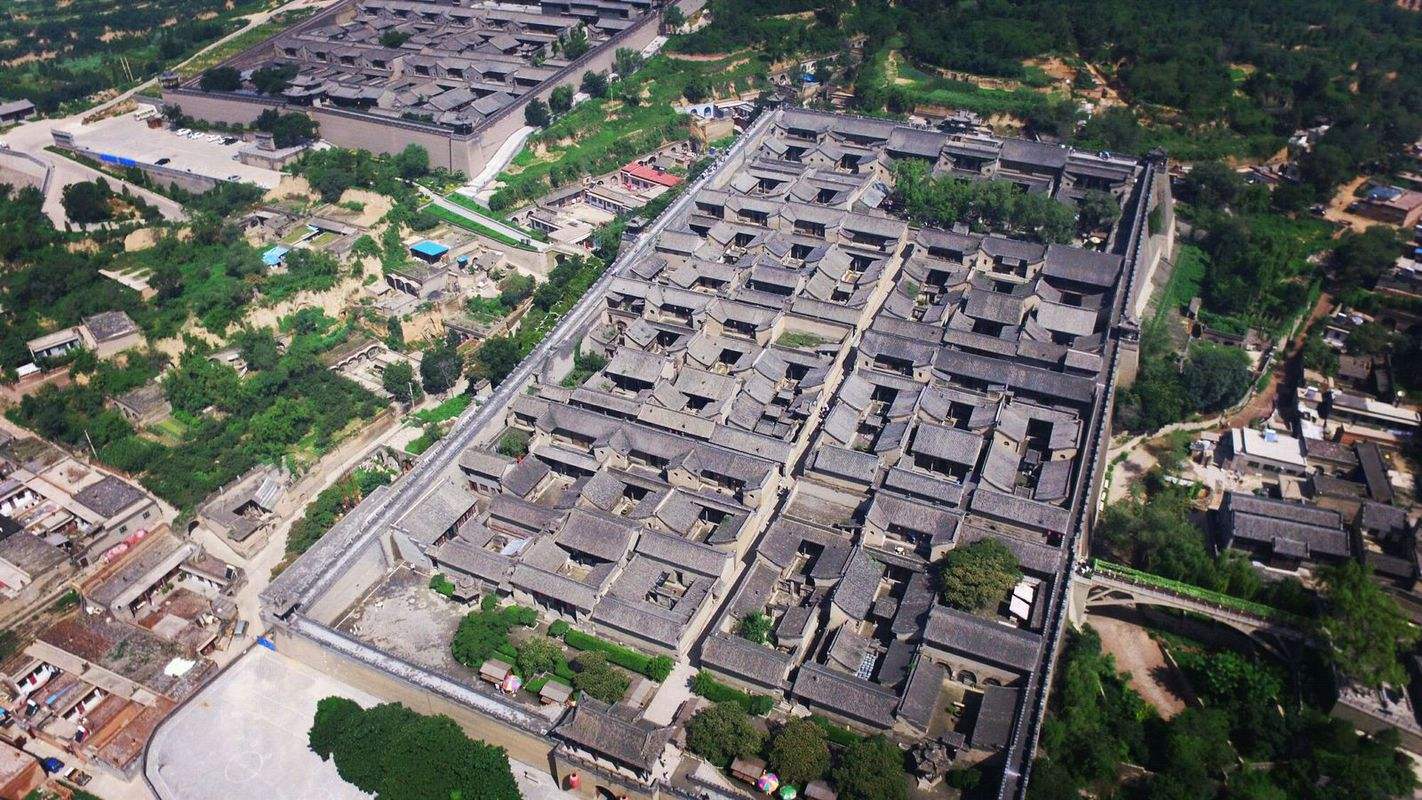Chinese Name: 王家大院 Pronunciation: wáng jiā dà yuàn
Building Time: After 1312 AD
Admission Ticket Fare: 55 yuan
Suggested Visiting Hours: 2-3 Hours
Occupied Area: About 45,000 square meters
Building Function: For Wang family‘s living
Address: Jingsheng Town, Lingshi County, Jinzhong City, Shanxi Province
| Opening Hours | 08:30-17:20 |
| No Entry | 17:20 |
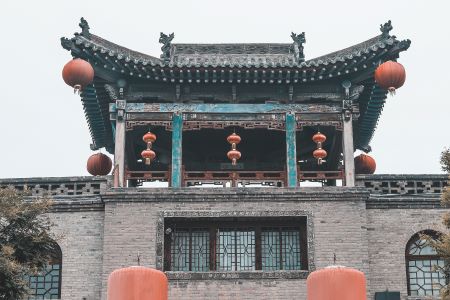
Wang Family Courtyard is located in Jingsheng Town, a famous Chinese historical and cultural town, Lingshi County, Shanxi Province. It is 35 kilometers (about 22 miles) away from Pingyao Ancient City and 140 kilometers (about 87 miles) from Taiyuan City. Wang Family Courtyard was built over 300 years by descendants of the Wang family through the Ming (1368-1644) and Qing (1636-1912) Dynasties.
Wang Family Courtyard has five lanes, six castles, and one main street, with a total area of 45,000 square meters. It is not only a luxurious residence but also an architectural art museum with traditional cultural characteristics.
Wang Family Courtyard is the national key cultural relic protection unit and a Chinese AAAA level scenic spot. It is also renowned for its stone carvings, wood and brick carvings. Images of carvings such as flowers, birds, fish, insects, mountains, rocks, boats and opera figures are vivid and exquisite. Now, the architectural complexes opened for visitors are Gaojia Ya Architectural Complex, Hongmen Bao Architectural Complex, Xiaoyi Ancestral Hall, etc. Altogether there are 231 courtyards and 2,078 houses in the Wang Family Courtyard.
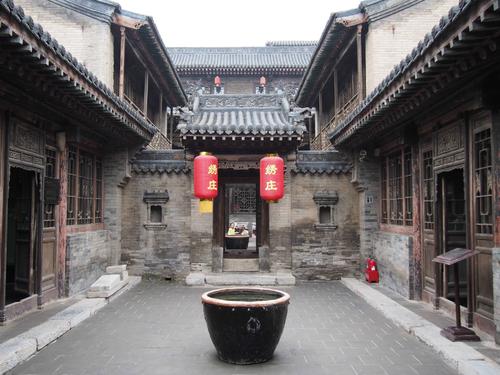
The Wang family’s ancestors lived in Taiyuan originally. During the reign of Emperor Renzong of the Yuan Dynasty (1312-1313), the ancestor Wang Shi moved to Jingsheng Village. And he started to farm and did businesses such as selling tofu.
As time went by, descendants of Wang Shi gradually became rich businessmen or officials serving for the imperial court. Wealth growing and reputation aggregating, every generation of the Wang family would build their houses, thus shaping today’s Wang Family Courtyard. However, during the reign of Emperor Xizong of the Ming Dynasty (1605-1627), descendants of the Wang Family did not farm, learn, and develop business. Some even became thieves and beggars. Since the 18th century, the Wang family has declined, and no one lived in the yards anymore.
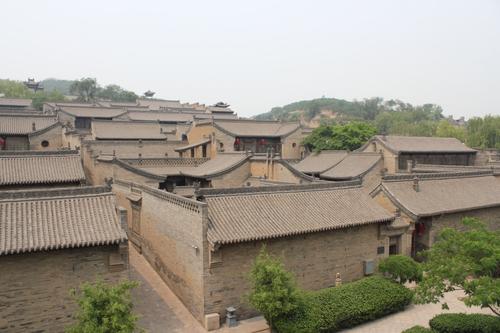
Hongmen Bao Architectural Complex of Wang Family Courtyard was built from 1739 to 1793 under the reign of the Qianlong emperor of the Qing Dynasty (1736-1795). It includes 88 courtyards and 776 houses, covering a total area of 25,000 square meters.
The overall layout of the Hongmen Bao Architectural Complex resembles the shape of the characters “王"(which means the ‘king’ in English) and “龙” (which means the ‘dragon’ in English). Here, the Painting and Calligraphy Museum, Treasure Museum, Zhuoju Tea House, Tofu Workshop and the "Picture Exhibition of Shanxi Chamber of Commerce" in Hongmen Bao Architectural Complex all have been opened to visitors.
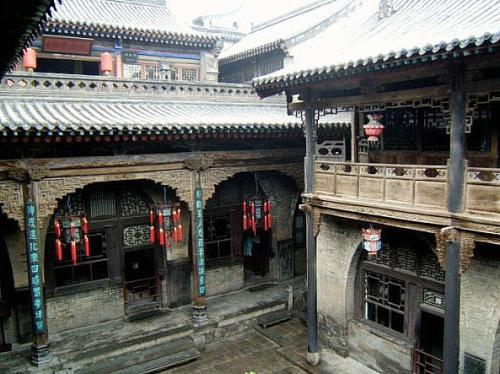
Gaojia Ya Architectural Complex of Wang Family Courtyard was built by Wang Rucong and Wang Rucheng, the seventeenth generation of the Wang family, from 1796 to 1811 under the reign of the Jiaqing Emperor of the Qing Dynasty (1796-1820). It has a total area of 19,572 square meters. Gaojia Ya Architectural Complex consists of 35 courtyards and 342 houses. The ingenious stone carvings, wood and brick carvings contain rich cultural connotations.
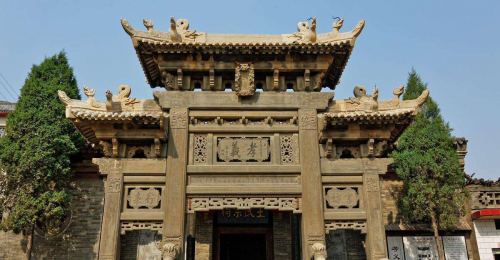
XiaoYi Ancestral Hall, opened to tourists in 1998, is the smallest one of the five ancestral halls in Wang Family Courtyard. Located on the south slope of Gaojia Ya Architectural Complex and Hongmen Bao Architectural Complex, it is an important cultural relic protection unit in Jinzhong City. Xiaoyi Ancestral Hall was expanded based on Xiaoyi Memorial Archway which was built for praising Wang Mengpeng’s filial piety and righteous deeds. Wang Mengpeng was the 15th generation descendant of the Wang family.
The ancestral hall has two courtyards, one on the upstairs and the other downstairs. Its total area extends 428 square meters. On the first floor, there are three main rooms, displaying the models of Wang’s Ancestral Hall, Wang’s tomb and sculptures that recorded Wang Mengpeng’s good deeds. The five main halls upstairs enshrined ancestors' memorial tablets.
Chinese: 请带我去王家大院。 English: Please take me to the Wang Family Courtyard.
If you go to Wang Family Courtyard from Pingyao Ancient City, it takes about 60 minutes (about 100 yuan).
